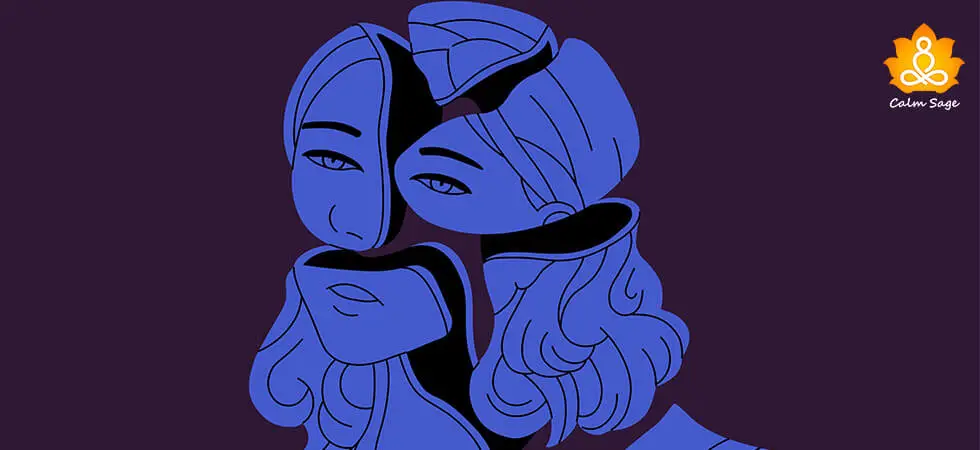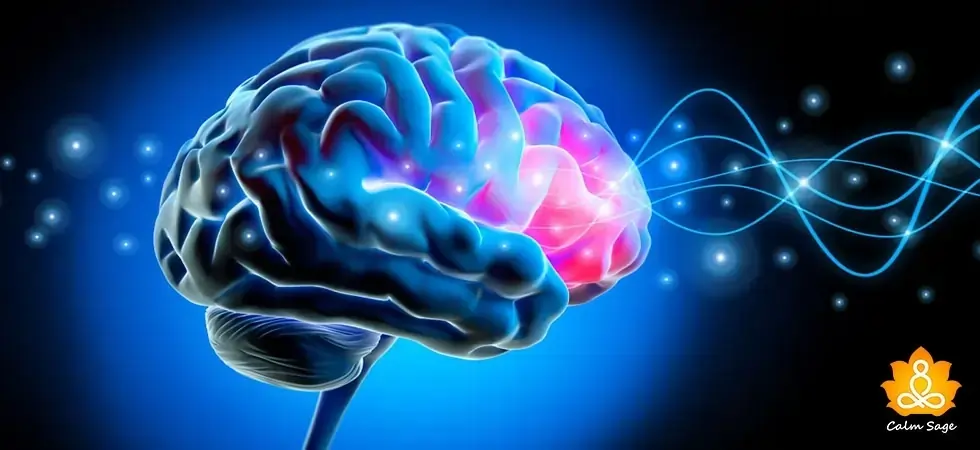All You Need To Know About Ego Death

Have you ever reached an intense point wherein you feel losing your sense of self or your personal identity? This phenomenon in psychology is referred to as ego death or ego dissolution. Ego death is a thoughtful intense state wherein an individual’s identity dissolves or is provisionally lost.
In such a state, people start feeling an intense sense of interconnectedness and centeredness with everything around them. This helps in dissolving boundaries between themselves and other people.
Additionally, ego death can also be used for building self-awareness, enhancing personal growth, or indulging in spiritual awakening. The stages of ego death help in rising above ego-related attachments and perspectives. During this, people start questioning everything they believe which usually results in a long-lasting impact on their sense of self and their own perspectives.
In this blog, we will take a deep look at what ego death is, its examples, signs, stages, and more. So, let’s get started!
What to Know About Ego Death?
- Ego death is also referred to as ego loss or ego dissolution. Ego death is termed this way because it induces the feelings of dying wherein an individual loses their self, identity, and desires.
- The term “Ego Death” was coined by Timothy Leary in the 1960s in a book titled “The Psychedelic Experience” wherein he described that the experience of ego death can be enlightening or terrifying.
- The feelings of ego death are mostly related to losing one’s self, most words describing ego death are blissful, scary, therapeutic, eye-opening, and more.
- The history of ego death is related to old spiritual and religious practices such as Zen Buddhism, Hinduism, and Christianity.
What is Ego Death?
Ego death is also referred to as ego loss or ego dissolution. Ego death is termed this way because it induces the feelings of dying wherein an individual loses their self, identity, and desires.
The process of ego death is known to be a sharp and authentic experience. Herein, the mindset of an individual plays an important role because it generally shapes the personality and purpose of life. Ego death offers valuable insights related to existence, purpose, connection, belongingness, and more. After this experience, you might also be able to see a shift in beliefs and priorities. An individual is able to identify hidden potentials within.
Research shows that high levels of glutamate (a common excitatory neurotransmitter in the brain) in the hippocampus can result in positive experiences of ego dissolution meanwhile higher levels of glutamate in the medial prefrontal cortex are related to negative experiences of ego death.
Signs of Ego Death
The occurrence of ego death can be deeply personal; people often shift their priorities and fundamentally change during this process. Below listed are some of the common yet important signs of ego death:
1. Loss of Control: Ego death is the dissolution of ego, during this people often feel a loss of control over their sensations, emotions, or thoughts. In some cases, the lack of control can be therapeutic and alarming. It’s a state of openness wherein people start gaining perspective and lose their personal identity.
2. Surpass the reality: When ego death occurs, it takes you beyond a different world wherein you escape the ordinary and start building a boundless and timeless state of awareness wherein past, present, and future everything gets merged.
3. Sense of spiritual awakening: Ego death takes people to another level of experience wherein they transcend and start gaining insights on purpose, existence, wonder, veneration, and others.
4. Shift in priorities: Ego death shifts priorities of individuals after which they often start integrating and reflecting more.
How Do People Experience Ego Deaths?
The whole experience of ego death is generally accompanied by the dissolution of identity. During this, people often find themselves split into two selves. People enter into a state wherein they can find themselves entering into a new world wherein there are no boundaries but learning and gaining insights on different things.
1. Meditative States: Meditation states can build deep absorption which may transcend an individual’s sense of self and personal identity. Focused attention, mindfulness, and breathwork can lead to ego death effectively.
2. Near-death Experiences: A study shows that new-death experiences can also result in ego dissolution. Such out-of-body experiences can also induce a sense of unity. Childbirth may also result in ego death.
3. Psychedelic Substances: Ego death or ego dissolution is a side-effect of psychedelic experiences. Excessive substances such as LSD, LMT, psilocybin, and others can induce such thoughts.
LSD is a form of psychedelic drug known for its potential therapeutic effects. There are many studies revolving around the potential of psychedelics to improve psychological health. However, the mechanisms of such drugs are not entirely studied because of limitations put by the Government.
4. Spiritual Practices: Intense and focused spiritual practices can result in spiritual awakenings and immersion into ego dissolution. Such practices can alter states of consciousness. For example:
- Christian believers put away their desires as they focus more on living for god.
- Buddhism followers describe ego death as enlightenment and union with the deity.
- Sufi Muslims describe ego death as “Fana” which means dying in god. It is achieved by reflecting upon the qualities of the
States of Ego Death
Research shows that there are three stages of ego death wherein people transcend and lose one’s self during the process. Every occurrence of ego death is a different experience accompanied by three stages such as:
Stage 1- Dissolution: Before the occurrence of ego death, dissolution occurs wherein individuals start losing their grip on reality and transcend toward deep imagination.
Stage 2- Ego Loss: After dissolution, a complete loss of one’s identity can be observed accompanied by a sense of unity. This stage could be terrifying for unprepared individuals.
Stage 3- Return: After the complete ego loss, individuals come back to routine or reality by gaining a new perspective. The effect of ego loss can be long-lasting resulting in both negative and positive effects (depending on various factors such as age, sex, and others).
Taking a Look from Both Sides: Pros and Cons of Ego Death
Pros:
- Improves well-being as some people consider it as a blissful experience
- Provides helpful therapeutic benefits such as it can help treat anxiety, substance use disorder, depression, and other mental health conditions
- Innate connectedness
Cons:
- Can be a terrifying experience for some people as people react differently
- Intense side effects of ego death may cause nausea, dry mouth, psychosis, sleep problems, and others
Frequently Asked Questions
1. What happens after an ego death?
When your ego dies, you enter a phase wherein you welcome love and light. It usually takes time to settle the dust and soften a little bit more. During this phase, you start learning more about nature and enhance enlightenment and soul growth.
2. What is the ego death phase?
The ego death phase happens when you self-surrender and welcome positive transitions.
3. Is ego good or bad?
The term ego reflects someone’s sense of self; it revolves around thoughts and feelings. The fact is that we all have egos, a healthy ego helps boost our self-confidence meanwhile, while a bad ego hinders our personal growth.
Do you want to share your thoughts about ego death or have a query, scroll down and connect with us!
For more such relatable content, connect with us through social media.
Thanks for reading!




















